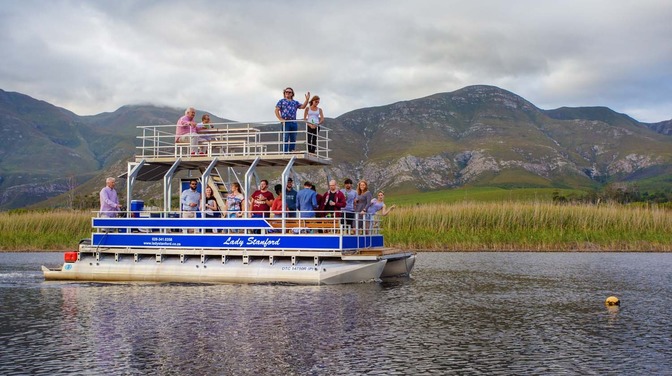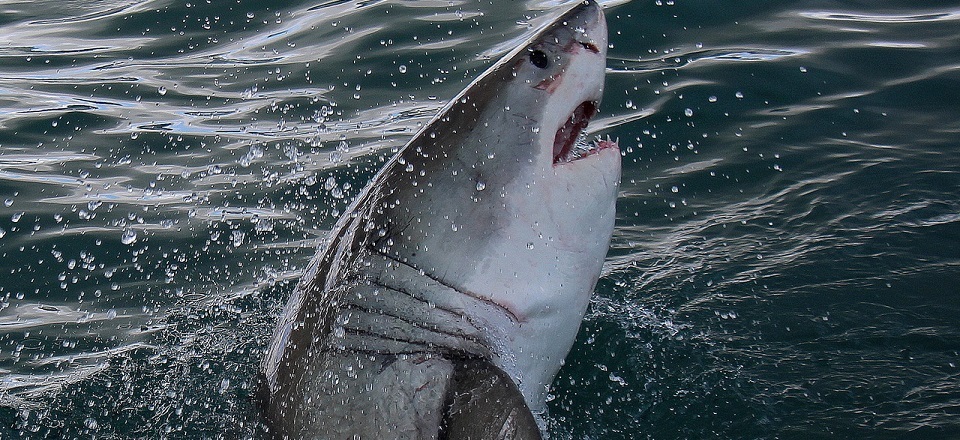WHITE SHARKS IN GANSBAAI, WESTERN CAPE, SOUTH AFRICA
Recent media reports highlighting the absence of great white sharks in False Bay has resulted in much confusion for shark cage diving tourists to South Africa and the tourism industry at large. Gansbaai is 2 hours from Cape Town and is referred to as the White Shark Capital of the World. Here the team of Marine Dynamics/Dyer Island Conservation Trust have been studying the white shark for nearly 15 years. Daily observational data by their onboard marine biologists is crucial to the scientific research objectives. Research activities include tagging and tracking of great white sharks, behavioural surveys, movement and foraging ecology, environmental parameter monitoring as well as population and fincam studies that help to understand and assess this vulnerable species.
“Shark cage diving is the only crucial monitoring platform of white sharks in South Africa. Whilst this species is protected in our waters it is facing many threats, that includes natural predators such as a pair of orcas specialising in hunting sharks for their livers, and human threats of industrial fisheries, pollution and environmental pressures, as well as illegal fishing,” says Marine Dynamics owner Wilfred Chivell. “Whilst we had a couple of tough years as the white sharks shifted their territory in 2017 and 2018, we have been enjoying incredible white shark sightings in Gansbaai over the past few months. Marine Dynamics has a daily blog that highlights sightings. The confusion created by a misleading headline can have negative ramifications on tourism and ultimately for white sharks as we have become the conservation voice for white sharks.”
Shark biologist, Alison Towner says, “Our team was involved in the research and monitoring of white shark behaviour pre and post orca presence in the Gansbaai area, as well as the necropsies on the white sharks that washed up over two years ago - we have a study being published on these results. When dealing with transient marine predators many facts must be considered. White sharks are highly migratory animals spending an average of a few weeks in any one area. We know that they respond to a natural predator and our observations support similar distribution shifts seen in California and Australia. However, many other factors influence their distribution, and we believe it is a combination of pressures leading to the shifts we are seeing in South Africa.
The researchers believe in collaborative and inclusive science and were part of an important paper recently published in Nature that highlights the threats that South Africa’s white sharks face in the high seas. White shark researchers in South Africa are working together to monitor white shark behaviour and movement patterns in order to better conserve the species.
Scientific publications can be found at www.dict.org.za / Daily sightings
For more information, feel free to contact Marine Dynamics Shark Tours directly.













.jpg?width=431&height=242)








.jpg?width=250&height=182)












